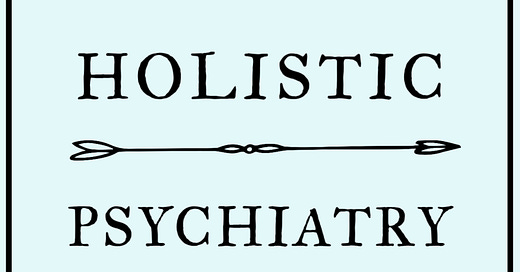The last newsletter, I addressed how our hormonal stress response can trigger mast cells and microglial cells, thereby interfering with neuronal communication in the brain and causing symptoms. Such symptoms can include brain fog, fatigue, depression, anxiety, mood swings and, for some, hallucinations.
We live in a world that is increasingly inflammatory - more toxins, more insults to our microbiome, and more insults to our sense of self from marketing and media. Add to this the reality that many things that lower our stress response and thus inflammation, are being diminished - less human connection, less silence, solitude, stillness and time in the natural world. But, we have choices. Supporting our brain and well-being is really about getting back to the basics of our humanity and getting back to the things most of us long to do anyway.
We can approach the below list with an openness to ideas (of which one or two may resonate) ...or we can approach it like a to-do list - one that reinforces the notion that we need to fix ourselves to be worthy. My hope is the former. We’re already worthy and deserving of feeling healthy.
This list will generally move in the direction of what I think most of us can benefit from (1-3), additional considerations that may be helpful for those with brain symptoms (4-7) and, lastly, I’ve included tools for those who are dealing with very high immune reactivity and/or mast cell activation syndrome (8-10). This list will not be complete. Perhaps you’ll share what is helpful for you.
To receive the newsletter (text and audio) in your mailbox each week, subscribe at: https://www.courtneysnydermd.com or
on Substack at:
https://www.courtneysnydermd.substack.com
Medical Disclaimer: This newsletter is for educational purposes and not intended or implied to be a substitute for professional medical advice, diagnosis or treatment for either yourself or others, including but not limited to patients that you are treating (if you are a practitioner). Consult your own physician for any medical issues that you may be having.













Share this post